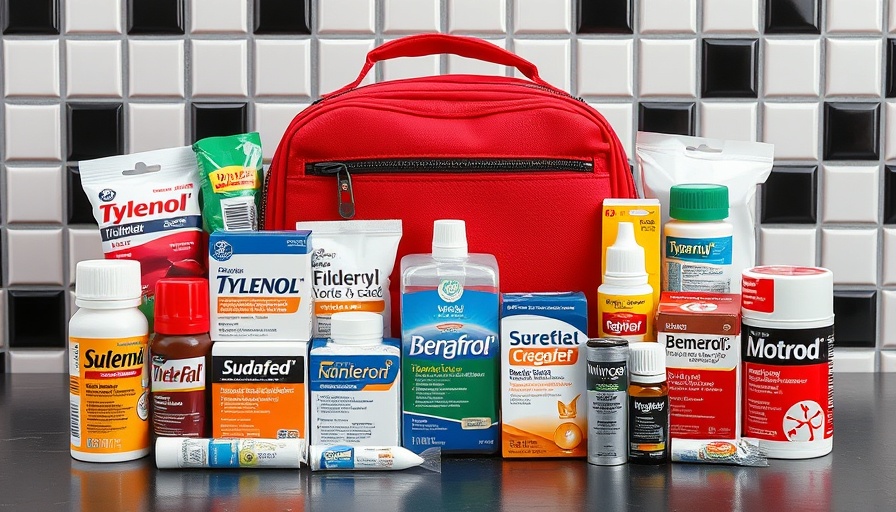
Why a First Aid Kit Is Essential for Every Home
A well-stocked first aid kit isn't just a luxury; it's a necessity for every household. Think of it as your first line of defense in emergencies, whether it's a minor injury or a more significant medical situation. Beyond band-aids and antiseptics, having the right medications can make a world of difference. For urban homeowners and DIY enthusiasts, understanding how to effectively prepare your kit can be empowering and even life-saving.
Types of Medications You Should Include
While basic supplies are essential, it's important not to overlook the range of medications that can also protect your health. Here are critical categories and examples to consider for your first aid kit:
Pain Relief Medications
Dealing with pain is never easy, especially when it strikes unexpectedly. Including over-the-counter pain relief options can not only help alleviate discomfort but also keep you calm while waiting for medical help. Consider the following:
- Acetaminophen (Tylenol): This common pain reliever works well for reducing symptoms in both adults and children, making it a vital component of your arsenal.
- Ibuprofen (Advil, Motrin): Known for its anti-inflammatory properties, ibuprofen offers relief for various aches and minor injuries.
Essential Allergy Medications
Allergic reactions can occur out of the blue, causing fear and anxiety. A well-prepared first aid kit should include:
- Antihistamines: Medications like diphenhydramine (Benadryl) can counteract mild to moderate allergic reactions, providing relief from itching and swelling.
- Epinephrine Auto-Injector (EpiPen): An essential item for anyone with severe allergies, the EpiPen delivers immediate adrenaline in case of anaphylaxis.
Digestive Health Medications
Stomach issues often feel like they come out of nowhere, so being prepared can save you from a tough situation. Adding digestive medications can alleviate discomfort quickly:
- Antacids: Quickly neutralizing excess stomach acid, products like Tums or Pepto-Bismol can bring immediate relief.
- Anti-diarrheal Medications: Having loperamide (Imodium) on hand can help manage sudden bouts of diarrhea, providing both relief and reassurance.
Stay Hydrated: The Forgotten Essential
Along with medications, don’t forget your hydration needs. When illness strikes, it’s easy to lose fluids. Always have clean, safe water available in your first aid kit, as water is a crucial element for recovery.
How to Create a Comprehensive First Aid Kit
Building a first aid kit requires thoughtful consideration of potential emergencies you might face. Here are actionable steps you can take:
- Assess Your Needs: Consider personal health issues within your household.
- Stay Updated: Regularly check expiration dates on medications and replace as necessary.
- Educate Yourself: Familiarize yourself with what each item does, so you're prepared to use it correctly.
Conclusion: Be Prepared to Care
In emergencies, every second counts, and being prepared can save lives. Having a well-stocked first aid kit that includes key medications can enable you to act quickly and effectively. Consider checking or updating your kit soon!
Embrace the peace of mind that comes with preparation and ensure you're ready to care for yourself and those around you during any emergency.
 Add Row
Add Row  Add
Add 




 Add Row
Add Row  Add
Add 

Write A Comment